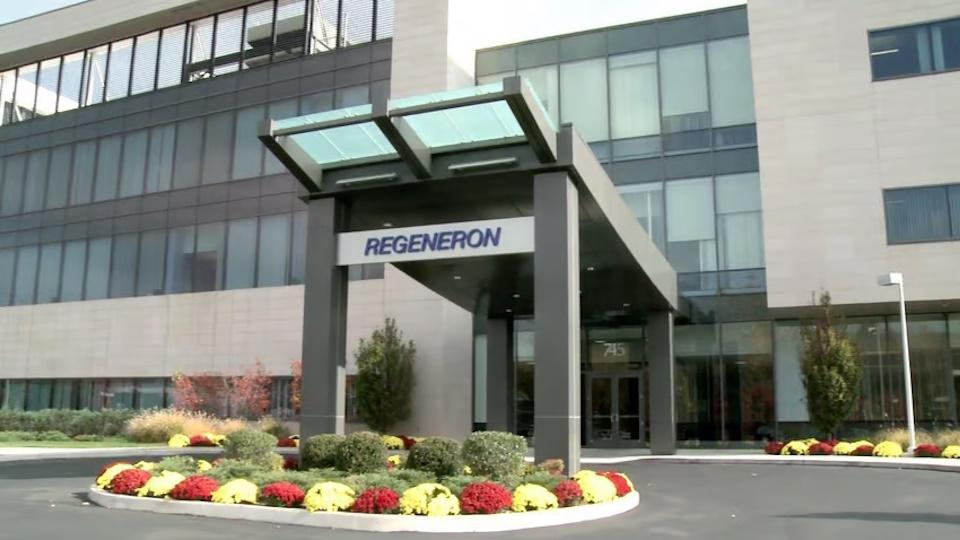Regeneron bids to join the BCMA bispecific camp

Regeneron has moved closer to a regulatory filing for its BCMAxCD3 bispecific antibody linvoseltamab, the first of a series of bispecifics that is spearheading its oncology pipeline.
New data from the phase 1/2 LINKER-M1 trial has shown a 71% objective response rate with the drug in heavily pre-treated multiple myeloma patients, with 46% achieving a complete response or better after 11 months of follow-up.
Regeneron is playing catch-up in the BCMAxCD3 class with Johnson & Johnson’s Tecvayli (teclistamab) and Pfizer’s Elrexfio (elranatamab), which have both been cleared by the FDA for relapsed or refractory multiple myeloma.
The top-line efficacy data with Regeneron’s drug looks a little stronger than its rivals at first glance, with the usual caveats about trying to compare data from different trials.
Elrexfio was approved on the strength of the phase 2 MagnetisMM-3 study, which showed an ORR of 61%, including 35% complete responses at 15 months of follow-up. Meanwhile, in the MajesTEC-1 trial, Tecvayli was associated with an ORR of 63%, with 45% complete responses at just over 14 months.
All three drugs are being positioned as an off-the-shelf alternative to CAR-T therapies – Bristol-Myers Squibb/bluebird bio’s Abecma (idecabtagene vicleucel) and J&J/Legend Biotech’s Carvykti (ciltacabtagene autoleucel) – that have shown comparable efficacy rates.
However, CAR-Ts are made from patients’ cells and have complex manufacturing and administration procedures, are associated with higher rates of side effects, such as cytokine release syndrome (CRS), and tend to need longer stays in hospital.
On safety, linvoseltamab had a 100% adverse event rate, with 85% of patients experiencing a grade 3 (serious) or higher event, with CRS occurring in 46%. Regeneron said, however, that just one case of CRS was grade 3, which it maintains is lower than other drugs in the class.
Tecvayli and Elrexfio have both been cleared for use in patients who have previously received four or more prior lines of therapy, including a proteasome inhibitor, immunomodulatory drug, and anti-CD38 monoclonal antibody, and Regeneron is planning to file linvoseltamab in the same setting.
Dosing could be another point of difference for the new drug. Elrexfio has a slight edge over Tecvayli in dosing frequency, as it can be given every other week after an initial course of 14 weekly doses, while J&J’s drug needs to be given weekly throughout. Regeneron is hoping to improve on that even further, with a regimen that allows “deep responders” to go from two-week to four-week dosing.
Its regimen also has a short monitoring time and saves time for clinicians and patients. According to Regeneron, it has a “best-in-class” profile overall.
“Multiple myeloma remains an incurable disease, in which patients endure cycles of relapse and remission, resulting in a critical need for innovative medicines,” said Andres Sirulnik, who heads Regeneron’s translational and clinical sciences unit for haematology.
“With longer follow-up data on linvoseltamab, we’re seeing deep and durable responses, with a complete response rate nearing 50% in a difficult-to-treat patient population who had received a median of five prior lines of therapy,” he added.
All three companies are also hoping to move their bispecifics into earlier lines of therapy, and Regeneron is running a phase 3 trial of the drug (LINKER-MM3) in combination with other multiple myeloma therapies in patients who have received between one and four prior therapies, as well as a phase 1/2 trial (LINKER-MM4) in previously untreated patients.
For Regeneron, linvoseltamab is the lead drug in its cancer bispecific pipeline, which also includes Zai Labs-partnered CD20xCD3 drug odronextamab for non-Hodgkin lymphoma (NHL) in phase 3 and MUC16xCD3 candidate ubamatamab for platinum-resistant ovarian cancer in phase 2.
At the moment, the company’s only cancer drug is PD-1 inhibitor Libtayo (cemiplimab), approved for squamous cell carcinoma, basal cell carcinoma, and non-small cell lung cancer.













